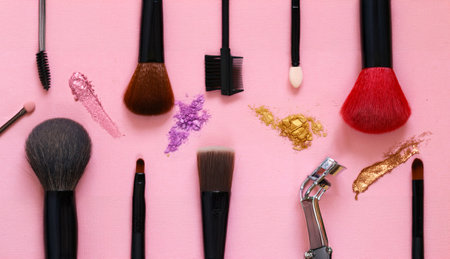Understanding Your Skin Tone and Undertone
Before you even look at a hair color swatch, the first thing you need to do is figure out your skin tone and undertone. This step is key to choosing a hair color that flatters your natural features and enhances your overall look.
What’s the Difference Between Skin Tone and Undertone?
Your skin tone refers to the surface color of your skin—fair, medium, or deep. Your undertone, on the other hand, is the subtle hue beneath your skin’s surface that affects how colors appear on you. Undertones generally fall into three categories: cool, warm, or neutral.
How to Identify Your Skin Tone
Look at the overall shade of your skin without makeup and in natural light. Here’s a simple guide:
| Skin Tone | Description |
|---|---|
| Fair | Pale skin that burns easily, often with pink or porcelain undertones |
| Medium | Beige or olive-toned skin that tans gradually |
| Deep | Darker brown or ebony skin that rarely burns and tans easily |
How to Find Your Undertone
If youre unsure about your undertone, try these easy tests:
1. The Vein Test
Look at the veins on your wrist in natural light:
- Blue or purple veins: You likely have a cool undertone.
- Greenish veins: You probably have a warm undertone.
- A mix of both: You might be neutral.
2. The Jewelry Test
Think about whether gold or silver jewelry looks better on you:
- Silver jewelry: Typically flatters cool undertones.
- Gold jewelry: Usually complements warm undertones.
- Both look great: Youre likely neutral.
3. The White T-Shirt Test
Hold a white shirt (or piece of paper) next to your face in natural lighting. If your skin looks rosy or pinkish next to it, youre probably cool-toned. If it appears more yellow or golden, youre warm-toned. If you can’t really tell either way, you’re likely neutral.
Why This Matters for Hair Color
Your skin tone and undertone work together to determine which hair colors will enhance your natural beauty versus which ones might wash you out. Once you know where you fall on the tone and undertone spectrum, youll be ready to match yourself with shades that truly make you shine—in every sense of the word!
2. Best Hair Colors for Cool Undertones
If your skin has cool undertones, that means you likely have hints of pink, red, or blue beneath the surface. People with cool undertones usually look great in silver jewelry and may have blue or green veins on their wrists. The key to choosing the perfect hair color is picking shades that balance and enhance your natural complexion without making it look washed out.
Top Hair Color Choices for Cool Undertones
When it comes to flattering your cool-toned skin, go for hair colors that also have cool or neutral bases. These shades will complement your skin rather than contrast harshly with it.
Recommended Hair Shades
| Hair Color | Description | Why It Works |
|---|---|---|
| Ash Blonde | A soft blonde with grayish or silver tones | Cools down redness in the skin and gives a sophisticated look |
| Cool Brown | Brown shades without warm or red undertones (like mocha or espresso) | Adds depth while keeping the complexion balanced |
| Platinum Blonde | An icy, near-white blonde shade | Creates a bold contrast that enhances fair, cool-toned skin |
| Icy Pastels | Pale pastel shades with a bluish or silvery base (like lavender or baby blue) | Adds personality while staying aligned with cool undertones |
| Jet Black | A deep black with a cool-blue base | Makes light eyes pop and flatters porcelain complexions |
Pro Tips:
- If youre unsure about going too light or dark, start with highlights or lowlights in cooler tones to test the waters.
- Avoid overly warm hues like golden blondes or copper reds—they can clash with your natural undertone and make your skin appear dull.
- Toners are your best friend! They help maintain those icy shades and prevent brassiness.
The right hair color can bring out your best features and give your skin a healthy-looking glow. Stick with shades that match your undertone, and you’ll always be on point.
![]()
3. Best Hair Colors for Warm Undertones
If you have warm undertones, your skin typically has golden, peachy, or yellow hues. The best hair colors for you are those that reflect and enhance that natural warmth. Think of rich, sunny tones that bring out the glow in your complexion.
How to Tell If You Have Warm Undertones
- Your veins appear greenish under natural light.
- You look better in gold jewelry than silver.
- Your skin tans easily and rarely burns.
- Your natural hair color may have red, orange, or golden hues.
Top Hair Color Picks for Warm Undertones
Here are some flattering shades to consider if you have warm undertones:
| Hair Color | Description | Why It Works |
|---|---|---|
| Honey Blonde | A warm, golden blonde with soft yellow tones | Adds brightness and blends naturally with warm complexions |
| Golden Brown | A medium brown with golden highlights | Catches the light beautifully and enhances skins glow |
| Copper Red | An intense reddish-orange hue | Makes warm skin pop and adds a bold statement |
| Caramel Highlights | Smooth, golden-brown streaks on dark hair | Adds depth and dimension while staying within a warm palette |
| Strawberry Blonde | A soft blend of blonde and red tones | Lively and fresh, perfect for fair warm skin tones |
Tones to Avoid
Certain cool-toned shades can wash out your complexion or create an unbalanced look. Try to steer clear of the following:
- Ash Blonde – can make skin look dull or sallow
- Burgundy – too cool and may clash with golden undertones
- Platinum Blonde – often too stark against warm skin tones
Pro Tip:
If youre not ready for a full color change, try adding warm-toned highlights or lowlights to subtly enhance your natural hair color without overwhelming your look.
4. Best Hair Colors for Neutral Undertones
Get the inside scoop on why people with neutral undertones have the most versatility. If you’ve ever felt stuck between cool and warm shades, good news—you don’t have to choose! Neutral undertones mean your skin has a balanced mix of cool (pink or blue) and warm (yellow or golden) tones, giving you the freedom to experiment with a wide range of hair colors.
Why Neutral Undertones Are So Versatile
Neutral undertones act like a blank canvas. Whether youre drawn to rich chocolate browns or icy platinum blondes, chances are it’ll look great on you. This flexibility makes it easier to change your look seasonally or try trendy hair colors without clashing with your skin tone.
Top Hair Color Choices for Neutral Undertones
Here’s a helpful guide that breaks down some of the best hair color options for neutral undertones by category:
| Color Family | Recommended Shades | Why It Works |
|---|---|---|
| Blonde | Beige blonde, champagne, sandy blonde | These shades strike a balance between warm and cool, enhancing your natural undertone harmony. |
| Brown | Chocolate brown, chestnut, mocha | Rich mid-tone browns complement both sides of your undertone spectrum. |
| Red | Copper, auburn, rose gold | Adds warmth without overwhelming your complexion—perfect for making a bold yet balanced statement. |
| Black | Soft black, espresso | Darker shades with neutral bases enhance contrast while keeping things grounded and flattering. |
| Fashion Colors | Purple, teal, silver | Your neutral base allows bold colors to pop without clashing with your skin tone. |
Expert Tips for Choosing Your Shade
- Try temporary first: Use semi-permanent dyes or wigs to test out a shade before committing fully.
- Consider maintenance: Some colors fade faster than others. Think about how much upkeep you’re willing to take on.
- Add dimension: Highlights or lowlights can add depth and prevent flat-looking color.
- Consult a pro: A colorist can help blend tones that highlight your natural undertones beautifully.
Style Freedom at Its Finest
If you have neutral undertones, think of yourself as having a VIP pass to almost every shade on the color wheel. From soft pastels to deep jewel tones, your skin tone gives you permission to play—and that’s something worth celebrating.
5. Pro Tips for Choosing the Right Shade
Picking the perfect hair color isn’t just about your skin tone — it’s also about understanding how different elements like contrast, eye color, and your natural hair shade play into the overall look. Here are some expert tips to help you make the best choice for your next hair transformation.
Understand the Importance of Contrast
Contrast between your hair color and skin tone can either create a bold, dramatic look or a soft, natural vibe. If you have fair skin and go with a very dark shade, youll create high contrast that stands out. On the flip side, choosing shades closer to your natural coloring will give you a more subtle, blended appearance.
Contrast Guide
| Skin Tone | Low-Contrast Look | High-Contrast Look |
|---|---|---|
| Fair | Light blonde or soft copper | Deep brown or black |
| Medium | Warm caramel or chestnut | Platinum blonde or jet black |
| Deep | Rich espresso or dark auburn | Bright red or honey blonde highlights |
Eye Color Matters Too
Your eye color can really pop with the right hair shade. For example, green eyes shine with red tones like auburn or copper, while blue eyes look striking against cool blondes and icy browns. Brown eyes are super versatile and pair well with almost any hue.
Best Hair Shades Based on Eye Color
| Eye Color | Recommended Shades |
|---|---|
| Blue | Ash blonde, platinum, cool brown |
| Green | Copper, auburn, warm golden tones |
| Brown/Hazel | Chocolate brown, caramel, burgundy highlights |
Your Natural Hair Color Sets the Base
Your starting point matters. Going too far from your natural color may require more maintenance and could damage your hair over time. Use your current shade as a guide — adding dimension with highlights or lowlights is often a safer way to experiment without a full commitment.
Lifestyle & Upkeep Shouldnt Be Ignored
If youre always on-the-go or not into regular salon visits, stick to colors close to your natural base or opt for balayage and rooted looks that grow out gracefully. High-maintenance shades like platinum blonde or vivid fantasy colors may need frequent touch-ups and extra care.
Seasonal Trends Can Inspire Your Choice
The seasons often influence popular hair colors — think warmer tones in fall (like cinnamon and chestnut), icy blondes in winter, pastel hues in spring, and sun-kissed balayage in summer. While trends can be fun to try out, choose what works best for you year-round!
Quick Tip:
If youre unsure, consider doing a patch test with temporary dyes or consult with a professional colorist who can help match your undertones and lifestyle needs.
The right hair color doesn’t just flatter your complexion—it enhances your entire presence. With these pro tips in mind, you’re one step closer to finding your dream shade.


